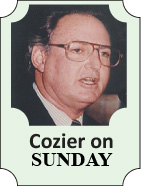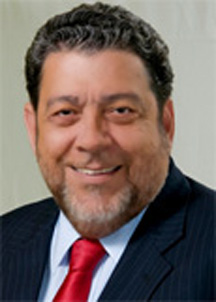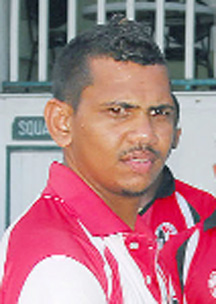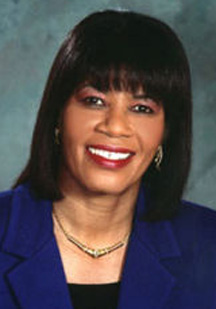The coming 10 weeks hold more significance for West Indies cricket than any other period in the recent past.
They are likely both to determine the future direction of the West Indies Cricket Board (WICB) and to establish whether the West Indies are making any progress out of the depths of the international game, a situation that could well bring head coach Ottis Gibson and captain Darren Sammy further under the microscope.
Between now and the end of the June, there are successive series of Tests and ODIs, with the sprinkling of a few Twenty20 Internationals, against two of the powerhouses of the present game, Australia at home and England in England
Gibson and Sammy have worked diligently to instill commitment and discipline in their players but have not been rewarded with results and, as in all sports, that is what counts most.
 Whatever the outcome in that regard (and the immediate evidence in the heavy loss to Australia in the first ODI at Arnos Vale on Friday is not encouraging), history makes it clear that changes of captains and coaches is a mere palliative.
Whatever the outcome in that regard (and the immediate evidence in the heavy loss to Australia in the first ODI at Arnos Vale on Friday is not encouraging), history makes it clear that changes of captains and coaches is a mere palliative.
In the 17 years since the prolonged phase of invincibility ended with the surrender of the Frank Worrell Trophy to Australia, there have been nine of the former and eight of the latter (not counting those just substituting) without any noticeable relief in the exasperation that caused spectators to exit from Arnos Vale en masse on Friday.
While these series are in progress, the West Indies Cricket Board (WICB) remains entangled in the Guyana government’s formation of an Interim Management Committee (IMC) to take over the administration of the game from the Guyana Cricket Board (GCB) and finds itself the increasingly favoured target of CARICOM governments, its position compromised by its recent undiplomatic retort to statements on various cricketing matters by Jamaica’s prime minister Portia Simpson Miller for which president Julian Hunte is reportedly eager to apologise.

In the circumstances, it is not implausible to assume that whatever change there is in the structure of the WICB, as there surely must now be, is subject to the political manoeuvering now taking place.
The prime minister of St. Vincent and the Grenadines, Ralph Gonsalves, made it plain on radio last week that he felt CARICOM had no executive place in cricket administration.
Quite apart from the knowledge that the International Cricket Council (ICC) has placed itself alongside the International Olympic Committee (IOC) and FIFA, football’s world governing body, in prohibiting such intrusion, and even given the WICB’s constant bungling, Gonsalves said West Indies cricket should be in the hands of those chosen by their peers in their respective constituencies – or, better still, in a reconstituted WICB.
What he did advocate for CARICOM was a consultative or monitoring role to ensure that the WICB is accountable for its decisions. It is a position probably shared by the majority of his colleagues.
Gonsalves might have made the point in person to Hunte and chief executive Ernest Hilaire during Friday’s ODI, at the same time asking what was being done to raise the ever declining standard of regional first-class cricket and how do they intend to deal with the inevitable exodus of its best players to the Indian Premier League (IPL) and other global Twenty20 tournaments.
The answers would have been instructive.

Never has the first-class season been so devalued as it has been in 2012. For three of the first four rounds, the WICB granted almost a dozen players, most of them contracted, No Objection Certificates (NOCs) to play in the new Bangladesh Premier League (BPL). No sooner had those players returned, than they were summoned to a two-week preparation camp for the Australia series.
It rendered the domestic matches not much higher than club level. The mouth-watering contest wrecked as a result was between Jamaica, the four-times champions, and Trinidad and Tobago at the Queen’s Park Oval.
The Jamaicans had to do without Marlon Samuels and Andre Russell. In addition to the injured Adrian Barath and Lendl Simmons, Trinidad & Tobago were without the Bravo brothers, Kieron Pollard, Sunil Narine and captain Denesh Ramdin.
When Ramdin cracked a finger at the camp (for the second time in the season), Carlton Baugh was hurriedly pulled out of Jamaica’s team at Queen’s Park on the Sunday (having scored 140) to prepare for the ODI on the Friday, heading back to Kingston in the interim to pick up his gear.
For their relevant matches, Barbados had to rebuild their attack since Kemar Roach and Tino Best were at the camp and Fidel Edwards was in South Africa for their Twenty20, having received an NOC.

It is doubtful whether the WICB is put out by such disruption. For the matches in Barbados (perhaps elsewhere as well), there was no pre-season promotion and only one stand at Kensington Oval was open. The message to the fans was obvious, if not to those who make such decisions. It was, ‘we don’t expect you to come but, if you do, there’s only one place you can sit’. Is there any wonder why cricket is losing its popularity? Nor did the WICB seem to appreciate that the staging of the final on the exact dates as the first Test against Australia (April 7-10) represented a clash that further diminished what is still its premier tournament. Its next, immediate mission is to consider the lure of the IPL which coincides precisely with the Tests against Australia and England. Apart from Chris Gayle, whose status continues to haunt the WICB, the two Bravos, Pollard, Russell, Samuels, Narine and the Trinidad & Tobago player, Kevon Cooper, have earned contracts.
The sudden impact of Sunil Narine’s confusing spin at the Champions Trophy last year led to his US$700,000 signing by the Kolkata Knight Riders.
Like Dwayne Bravo and Pollard, he is not contracted to the WICB yet, if only on the evidence of his 31 wickets at under 10 each in three matches for T&T this season, he would be a certainty for a Test place. But it would be too much to expect a 23-year-old at the start of his career to turn down such instant wealth.
The informed word here is that he is still considering his options. If he decides to go, the WICB must understand and advise him that he still qualifies for West Indies selection. It is a dilemma bound to become more prevalent and the West Indies are not the only ones to feel the effects. It is a problem that needs to be addressed by the International Cricket Council (ICC).








